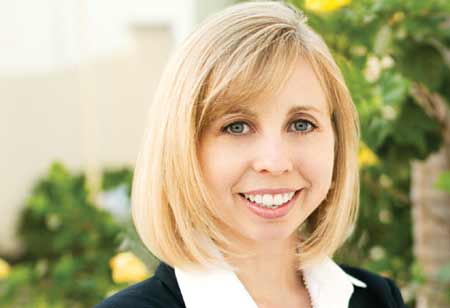Thank you for Subscribing to Healthcare Business Review Weekly Brief

AI doesn't Always Know Better
Healthcare Business Review
Two cover letters, two different candidates, same line. I’ve been working in executive search for 15 years and have read thousands of cover letters, and this is the first time I’ve encountered that. The reason: generative AI.
I wish people would trust themselves to write something original and compelling. It’s great to use technology to make our lives easier. We’ve all heard the adage, ‘Work smarter, not harder.’ Yet in our rush to adopt new technology and get things done more quickly, we’re losing our originality and our ethics. Work smarter, but don’t compromise your integrity.
For years, we’ve been hearing about the promise of artificial intelligence. Having tried ChatGPT, I must admit it’s impressive what it can do. Enter a simple prompt, and out comes an essay, the lyrics for a song, the chapter for a book. It’s like a magic genie for content creation. I hope that artificial intelligence never replaces human intelligence.
It is still human intelligence that has been responsible for incredible, ground-breaking discoveries over the centuries. Working in executive search within the healthcare and higher education sectors, I am awed and inspired daily by the brilliant people who walk the halls and fill the Zoom screens. These people are discovering cures for diseases, training new generations of scientists, caring for patients, finding ways to serve their communities, and contributing towards healing or bettering humankind. AI by itself can’t do that, but it can help us in our quest to do these things.
When it comes to executive search, how can AI help us? It can help us generate draft content as a starting place for ads, standard communications, or sets of interview questions. The key is ‘draft.’ Whatever ChatGPT spits out needs to be edited significantly to make it our own, otherwise, it’s plagiarism (and we don’t even know of whom or from what).
For candidates, AI offers examples of what a sample letter or resume could look like. It can provide questions they might be asked in an interview. It can also generate responses to those questions. And here is where candidates need to beware. Please don’t assume that AI knows best. In our quest for the perfect letter, the perfect resume, and the perfect interview, we’re potentially undermining our greatest quality: our uniqueness.
For those who might be skeptical about how many people are using AI, a Gartner survey found that more than 50 percent of respondents were using generative AI for resumes and cover letters, a number likely to increase.
As an executive recruiter, I urge everyone to remember that there is no best. Authentic is better than perfect. Do your homework and prepare for an interview, but then trust yourself and be yourself. I once had a neuroscientist send me an instant message during Zoom interviews to let me know that she could tell by studying candidates’ eye movements which ones were reading as they were talking. So even those of you who feel you’re well-practiced—the neuroscientists are on to you.
Please Don’t Assume That AI Knows Best. in Our Quest for the Perfect Letter, The Perfect Resume, the Perfect Interview, We’re Potentially Undermining our Greatest Quality: our Uniqueness
We are all grappling with how AI is infiltrating our world, whether we like it or not. I am part of the Higher Education Executive Recruiters Network, which consists of in-house executive recruitment teams at universities and academic medical centers across the country. We are cultivating best practices through candid discussions on the topic of AI in recruiting as it evolves. One way AI is proving useful is to improve Boolean searches for recruiters seeking qualified candidates or for candidates looking for jobs. The most important thing to remember is that you should never put any sensitive or proprietary information into any form of generative AI.
Yuval Noah Harari, a philosopher and historian, wrote an article for the Economist that was published in the spring of 2023 warning of the dangers of AI, particularly in a world without regulatory mechanisms to control it. There has since been progress on that front. The fall of 2023 saw President Biden’s Executive Order on AI which provides a framework for the responsible application and development of AI as well as the Algorithmic Accountability Act of 2023 which now requires companies to be more transparent with consumers regarding the use of AI. Still, we have a long way to go.
So, what advice do I have for candidates and recruiters in the executive search world?
[Enter prompt: how to conclude an article advocating for the value of humanity amidst AI (succinct and snappy)].
‘In a world dominated by AI, let’s not forget: our humanity is our greatest strength.’ Credit where credit’s due ChatGPT.









